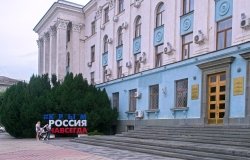Criminal Organizations and Illicit Trafficking within Guatemala’s Border Communities
The authors of a new CNA study on the effects of criminal organizations and illicit trafficking on Guatemala’s border communities discussed theirs findings together with others.
Overview
Earlier this year, in May, dozens of gunmen entered a farm in Guatemala’s Petén region, murdering and decapitating 27 people. Guatemalan authorities blamed the Zetas, a violent Mexican drug trafficking cartel increasingly active in Guatemala and other parts of Central America.
The massacre underscores the vulnerability of the civilian population in unsecured border areas between Mexico and Guatemala, where narcotics and human trafficking flourish. Drug trafficking and other forms of organized crime pose a growing threat to governance and to human security in Guatemala as well as other parts of Central America. The region has become a strategically important area for the international drug trade because of its geographical proximity to North American drug markets, the existing criminal networks with experience moving contraband and laundering money, and the abundance of weapons from the region’s many armed conflicts. In addition, successful efforts to disrupt Colombian trafficking routes through the Caribbean and Miami, along with the demise of the Cali and Medellín cartels in the 1980s, pushed the trafficking routes elsewhere. Organized crime takes advantage of the region’s weak and fragile institutions and exacerbates the already staggering levels of homicides that have converted the so-called Northern Triangle into the most violent region of the world outside of formal war.
On November 3, 2011 the Latin American Program joined with the Center for Naval Analysis(CNA) for a discussion of CNA's forthcoming report on the impact of drug trafficking on three border communities in the Guatemalan departments of the Peten, Zacapa, and San Marcos. The report, and consequently this event, examines not only the institutional weaknesses that have allowed drug trafficking to flourish, but also the impact on the civilian population living in border communties
For a copy of the report please refer to "Event Documents" below.
Speakers
Ralph Espach
Christopher Ashe
Julie López
Werner Ovalle
Hosted By

Latin America Program
The Wilson Center’s prestigious Latin America Program provides non-partisan expertise to a broad community of decision makers in the United States and Latin America on critical policy issues facing the Hemisphere. The Program provides insightful and actionable research for policymakers, private sector leaders, journalists, and public intellectuals in the United States and Latin America. To bridge the gap between scholarship and policy action, it fosters new inquiry, sponsors high-level public and private meetings among multiple stakeholders, and explores policy options to improve outcomes for citizens throughout the Americas. Drawing on the Wilson Center’s strength as the nation’s key non-partisan policy forum, the Program serves as a trusted source of analysis and a vital point of contact between the worlds of scholarship and action. Read more
Thank you for your interest in this event. Please send any feedback or questions to our Events staff.










